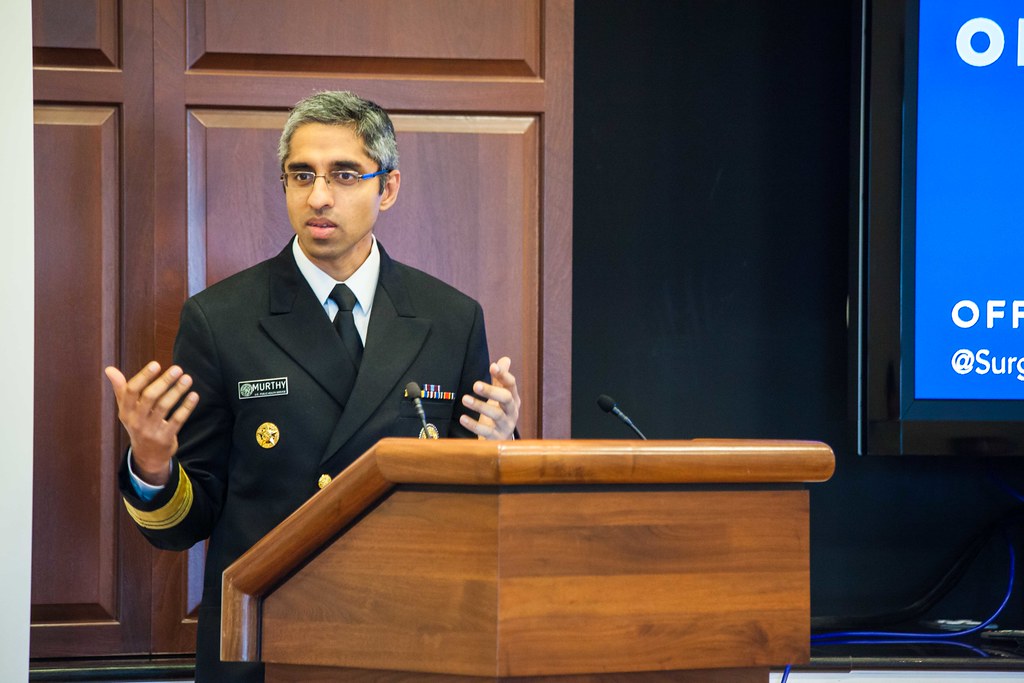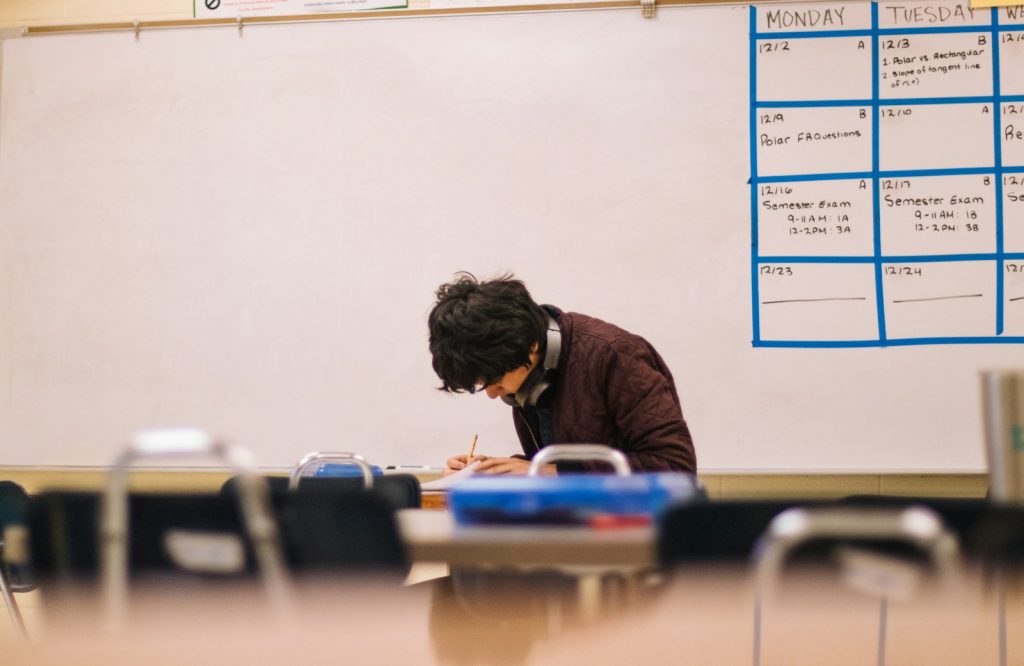US surgeon general advocates for increased oversight and extensive studies regarding the utilization of social media platforms by minors.
The nation’s doctor, Vivek Murthy, has warned that social media can have a “profound risk of harm” to children’s mental health and well-being. In a report released on Tuesday, Murthy drew on existing research to outline the potential negative effects of social media on children, including increased risk of depression, anxiety, and sleep problems. He also called for more regulations and research on minors’ use of social media.

Murthy’s report is the latest in a growing body of research that suggests that social media can have a negative impact on children’s mental health. A 2020 study by the Pew Research Center found that 69% of teens who use social media say they have experienced at least one negative effect from it, such as feeling anxious or depressed. And a 2021 study by the University of Pittsburgh found that teens who use social media for more than three hours a day are more likely to experience symptoms of depression and anxiety than those who use it for less than an hour a day.

Murthy’s report calls for more research on the effects of social media on children’s mental health, as well as for more regulations to protect children from harmful content. He also recommends that parents talk to their children about the risks of social media and set limits on their use.
The report comes at a time when social media use is on the rise among children and adolescents. According to the Pew Research Center, 95% of teens use some form of social media, and the average teen spends more than two hours a day on social media.

The potential negative effects of social media on children’s mental health are a serious concern. Parents, educators, and policymakers need to work together to find ways to protect children from these risks.
The surgeon general’s advisory on social media use warned of potential harms to children and teens, including:
- Sleep deprivation: Excessive social media use can disrupt sleep patterns, leading to fatigue, irritability, and difficulty concentrating.
- Mental health issues: Social media use has been linked to increased risk of depression, anxiety, and low self-esteem.
- Cyberbullying: Social media can be used to bully and harass others, which can have a devastating impact on victims.
- Access to extreme content: Social media can expose children and teens to violent, graphic, or sexual content that can be harmful to their development.
- Predatory behavior: Social media can be used by predators to target and exploit children and teens.
The advisory noted that children and teens are especially vulnerable to the negative effects of social media because they are undergoing a “highly sensitive period of brain development.” The brain is still developing during adolescence, and social media can have a significant impact on how the brain functions.
The advisory called for parents, educators, and policymakers to work together to protect children and teens from the negative effects of social media. Parents can talk to their children about the risks of social media and set limits on their use. Educators can teach children about online safety and cyberbullying. Policymakers can regulate social media companies to ensure that they are doing more to protect children and teens.
The surgeon general’s advisory is a wake-up call for parents, educators, and policymakers. Social media is a powerful tool, but it can also be harmful. We need to work together to protect children and teens from the negative effects of social media.
The surgeon general’s advisory on social media use comes amid growing concerns about the prevalence of social media use among children. Government officials are struggling to set guidelines for social media use by children, and there is a lack of research on the issue.
In Utah, a law was passed earlier this year that would require parental consent for minors to join social media platforms and block children’s access to the websites between 10:30pm and 6:30am. The regulations will go into effect next year, but it is unclear how they will be enforced.
The surgeon general’s advisory noted that social media can have potential benefits for children, such as exposing them to others who share their identities and experiences and enabling them to form friendships and have positive interactions online. However, the advisory also warned of the potential harms of social media use, such as sleep deprivation, mental health issues, cyberbullying, access to extreme content, and being susceptible to predatory behavior from adults.
The advisory called for parents, educators, and policymakers to work together to protect children and teens from the negative effects of social media. Parents can talk to their children about the risks of social media and set limits on their use. Educators can teach children about online safety and cyberbullying. Policymakers can regulate social media companies to ensure that they are doing more to protect children and teens.
The surgeon general’s advisory is a wake-up call for parents, educators, and policymakers. Social media is a powerful tool, but it can also be harmful. We need to work together to protect children and teens from the negative effects of social media.
Social media platforms are designed to keep users engaged for as long as possible. They do this by using a variety of techniques, such as push notifications, infinite scroll, “likes,” and content recommendations. These techniques can lead to excessive use of social media, which can have a number of negative consequences, including:
- Behavioral dysregulation: Excessive social media use can lead to problems with impulse control and self-regulation. This can make it difficult for people to focus on other tasks, make decisions, and control their emotions.
- Exposure to extreme, inappropriate, and harmful content: Social media can expose people to a wide range of content, including some that is extreme, inappropriate, and harmful. This content can have a negative impact on people’s mental health and well-being.
- Risk-taking and self-harm: Social media can encourage risk-taking and self-harm behaviors. For example, viral “challenges” on social media often dare users to engage in dangerous activities. In some cases, these challenges have led to serious injuries or even death.
- Body dissatisfaction, disordered eating behaviors, social comparison, and low self-esteem: Social media can perpetuate body dissatisfaction, disordered eating behaviors, social comparison, and low self-esteem, especially among adolescent girls. This is because social media often presents an idealized view of reality that can make people feel like they don’t measure up.
It is important to be aware of the potential risks associated with social media use and to take steps to mitigate these risks. Some tips for safe social media use include:
- Limit your time on social media: Set limits on how much time you spend on social media each day.
- Be selective about the content you consume: Only follow accounts that are positive and uplifting.
- Take breaks from social media: Take breaks from social media throughout the day, especially if you find yourself feeling anxious or stressed.
- Talk to someone you trust: If you are struggling with the negative effects of social media, talk to a trusted friend, family member, or therapist.
The Surgeon General issued a list of recommendations for policymakers, researchers, social media companies, parents, and children to help protect children from the potential harms of social media.
- Policymakers: Implement age-appropriate health and safety standards for children, such as designing technology that is appropriate and safe for a child’s developmental stage, and protecting children and adolescents from accessing harmful content.
- Researchers: Conduct more research on the effects of social media on children’s mental and physical health, and develop interventions to mitigate the risks.
- Social media companies: Develop and implement tools to help children use social media safely and responsibly, such as tools to limit screen time, block unwanted content, and report harmful behavior.
- Parents: Set boundaries on children’s social media use, talk to children about the risks of social media, and model safe and responsible social media use.
- Children: Be aware of the risks of social media, use social media responsibly, and talk to a trusted adult if you are concerned about the effects of social media on your mental or physical health.
The Surgeon General’s recommendations are a call to action for all stakeholders to work together to protect children from the potential harms of social media. By taking these steps, we can help ensure that social media can be a positive force in children’s lives.
Here are some additional tips for parents and caregivers on how to help children use social media safely:
- Talk to your children about social media and its potential risks.
- Set rules and limits for social media use.
- Monitor your children’s social media activity.
- Talk to your children about the content they see on social media.
- Encourage your children to be respectful and kind to others online.
- Teach your children how to report cyberbullying and other harmful behavior.
By following these tips, you can help your children use social media safely and responsibly.
SOURCE: AL JAZEERA







